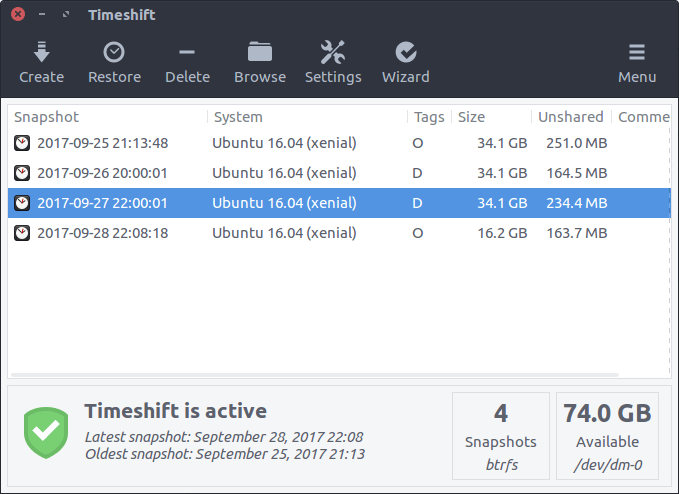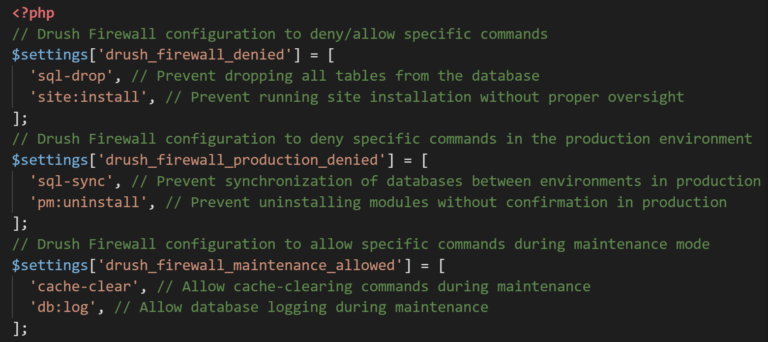In the contemporary digital landscape, ensuring the protection of user privacy holds paramount significance. The implementation of the General Data Protection Regulation (GDPR) and adherence to its guidelines on a WordPress website are imperative.
Understanding the necessity of GDPR compliance for WordPress websites is essential, alongside acquiring practical insights on how to effectively achieve this objective. Identification of optimal WordPress plugins that facilitate the navigation of data protection regulations and secure users’ sensitive information is pivotal.
The ensuing exploration will delve into these crucial aspects.
What is GDPR Compliance?

GDPR Compliance pertains to the adherence to the General Data Protection Regulation (GDPR), a set of regulations established to safeguard the data privacy and rights of individuals within the European Union (EU). It delineates regulations concerning data protection, privacy, and the management of personal data processed by businesses and organizations.
The fundamental principles of GDPR center around transparency, accountability, and consent in the management of personal data. GDPR is applicable to any entity that processes the personal data of individuals residing in the EU, irrespective of the organization’s location.
This regulation mandates businesses to procure explicit consent for data processing, inform individuals of data breaches, and designate a Data Protection Officer (DPO) to ensure conformity.
GDPR bestows upon individuals certain rights such as the right to access, rectify, and delete their personal data, underscoring the significance of data security and privacy.
Compliance tools, including data encryption and anonymization methodologies, are imperative for organizations to uphold GDPR regulations and effectively safeguard user data.
Why is GDPR Compliance Important for WordPress Websites?
Ensuring compliance with GDPR regulations is essential for WordPress websites, particularly given their routine handling of user data. Non-compliance can result in significant repercussions, including fines, legal proceedings, and harm to the website’s reputation.
Adherence to GDPR guidelines enables WordPress sites to exhibit accountability in managing personal data, upholding user rights, and cultivating trust with their audience. A key component in ensuring compliance is the role of Data Protection Officers, who oversee efforts to adhere to regulations and implement data retention policies to securely manage and safeguard user information.
Effective management of user consent holds paramount importance, give the power toing visitors to dictate the usage of their data and establishing transparency between the website and its users.
How to Ensure GDPR Compliance on Your WordPress Website?
To ensure GDPR Compliance on your WordPress website, it is imperative to incorporate robust privacy features, uphold transparency with users, utilize compliance software, and stay abreast of privacy regulations and guidelines.
An essential step towards achieving GDPR compliance is the update of your website’s privacy policy. It is crucial that the policy clearly delineates how user data is gathered, stored, and utilized. Explicit consent from users should be obtained prior to the processing of their personal data, while data access should be restricted solely to authorized personnel. The integration of cookie consent mechanisms serves to inform users about the tracking technologies employed on your site. Transparency plays a pivotal role in fostering trust with users. The utilization of compliance software can facilitate streamlined data management processes and ensure efficient compliance with GDPR requirements.
1. Update Your Privacy Policy
It is imperative to update your Privacy Policy to ensure alignment with GDPR principles and to inform website visitors about the methods through which their personal information is gathered, stored, and safeguarded. By guaranteeing that your Privacy Policy is thorough and transparent, you establish a sense of trust with your users and exhibit your dedication to safeguarding their data.
Clearly delineating the categories of information collected, the purposes for which it is utilized, and the security protocols in place aids users in making informed choices regarding the sharing of their personal data. Integration of information concerning user rights, including but not limited to the rights to access, rectify, or erase their data, not only demonstrates compliance with GDPR regulations but also bolsters user-centric data protection practices.
Ensuring that your Privacy Policy mirrors GDPR principles is not merely a legal obligation but also a means to augment user trust and transparency.
2. Obtain Consent for Data Collection
Securing explicit consent from users for data collection is a foundational requirement for adhering to the General Data Protection Regulation (GDPR). It is imperative to establish privacy controls that facilitate users in efficiently managing their data preferences.
The process of acquiring user consent plays a pivotal role in fostering transparency and trust in data processing endeavors. By offering unambiguous and affirmative consent mechanisms, entities can give the power to users to make informed choices regarding the utilization of their personal data.
Conducting Data Protection Impact Assessments aids in the identification and mitigation of potential risks linked to data processing activities, thereby fortifying user privacy. Employing compliance solutions can streamline the process of complying with privacy regulations, such as acquiring valid consent for cookies, consequently nurturing a culture centered on data protection and reverence for user rights.
3. Allow Users to Access and Delete Their Data
Enabling users to access and delete their data give the power tos them to exercise their privacy rights as stipulated by GDPR regulations and privacy legislation.
Granting users control over their personal data not only showcases transparency and respect for user privacy but also cultivates trust among their user base. This user-centric approach is consistent with the GDPR frameworks which underscore user consent and data protection. Facilitating requests for data access and deletion allows individuals to oversee their digital footprint and make informed choices regarding the use of their information. Upholding data protection laws and implementing robust user data management practices are vital measures for organizations to ensure GDPR compliance and uphold a steadfast commitment to protecting user privacy.
4. Implement Cookie Consent

The implementation of a robust cookie consent mechanism is imperative to uphold users’ privacy rights, monitor consent preferences, ensure privacy measures, and manage data storage in accordance with the General Data Protection Regulation (GDPR).
Having an efficient cookie consent process in place enables organizations to give the power to users by granting them control over their data and preferences, thereby increasing transparency in the collection and utilization of their information. When companies prioritize obtaining explicit consent from users prior to deploying cookies, they uphold the principle of accountability and demonstrate a dedication to protecting privacy.
The incorporation of compliance checklists not only aids in complying with GDPR regulations but also nurtures a culture of responsible data management, fostering a trustworthy relationship between businesses and their clientele.
What Are the Best WordPress Plugins for Ensuring GDPR Compliance?
Selecting the appropriate WordPress plugins is of paramount importance in guaranteeing GDPR compliance on your website. It is advisable to seek out plugins that conform to compliance standards, encompass thorough cookie policies, and align with GDPR obligations such as data processing agreements.
By integrating plugins that place a premium on safeguarding data and user privacy, website proprietors can cultivate a more transparent and dependable online setting. Cookie policies play a pivotal role in enlightening users about the nature of data collection and processing, thereby augmenting transparency and fostering user confidence. Data processing agreements delineate the obligations of all parties engaged in data processing, ensuring that personal data is handled in a compliant and secure manner by all parties. Opting for plugins that offer these functionalities can streamline the process of achieving GDPR compliance and illustrate a dedication to safeguarding user data.
1. GDPR Cookie Consent
The GDPR Cookie Consent plugin provides Privacy Shield Certification, compliance tools, privacy controls, and aligns with GDPR guidelines to facilitate effective cookie consent management on WordPress websites.
This plugin is an essential tool for website owners committed to prioritizing user privacy and adhering to stringent GDPR regulations. With its Privacy Shield Certification, users can have confidence that their data is safeguarded according to the highest international standards. The plugin streamlines the process of obtaining and managing cookie consent by offering compliance tools, thereby saving time and effort for site administrators. Its comprehensive privacy controls enable users to personalize their cookie settings, promoting transparency and building trust. By adhering rigorously to GDPR guidelines, the plugin assists websites in maintaining compliance, mitigating the risk of fines or penalties, and ensuring a secure and reliable online environment for visitors.
2. WP GDPR Compliance
The WP GDPR Compliance plugin is designed to address data protection, consent management, the creation of user consent forms, and the implementation of privacy features to improve GDPR compliance for WordPress websites.
By providing a comprehensive data protection solution, the plugin ensures that website owners have the necessary tools to appropriately manage user consent and comply with privacy regulations. Through customizable consent forms, users can easily provide explicit consent for data processing activities, promoting transparency and trust in the handling of their personal information. The integration of privacy features such as IP address anonymization and the facilitation of data access requests enables websites to align with GDPR requirements, ultimately safeguarding user data and fostering privacy compliance.
3. GDPR Compliance & Cookie Consent
The GDPR Compliance & Cookie Consent plugin is designed to address GDPR principles, user privacy concerns, data collection practices, and data security measures, ensuring comprehensive compliance for WordPress websites.
The plugin offers customizable cookie consent banners, enabling website owners to transparently communicate with visitors about the data being collected and the intended purposes. This emphasis on data processing transparency aligns with the GDPR’s requirement to inform users about their rights and the activities involving their data.
Moreover, the plugin facilitates the management of user preferences by allowing explicit consent for specific cookie types. This functionality ensures that users retain control over their personal data and privacy settings while browsing the website.
4. GDPR Cookie Compliance
The GDPR Cookie Compliance plugin offers essential privacy features, user transparency controls, integration with compliance software, and guarantees regular privacy updates to facilitate GDPR compliance for WordPress websites.
This plugin provides website administrators with the capability to personalize cookie consent banners to align with their branding, delivering a cohesive user experience. By granting users the ability to finely adjust their cookie preferences, the GDPR Cookie Compliance plugin give the power tos individuals to make informed choices regarding their online privacy. Its seamless integration with popular compliance software simplifies the task of adhering to regulatory standards, thereby conserving time and effort for website owners. By issuing timely notifications and automatic updates, this plugin ensures that websites maintain compliance with evolving privacy regulations and uphold user data protection.
How Do These Plugins Help with GDPR Compliance?
WordPress plugins developed for GDPR compliance offer essential features that bolster website security, streamline data management processes, establish efficient privacy controls, and facilitate the execution of Data Protection Impact Assessments.
These plugins are integral in protecting sensitive user data through data encryption, secure login mechanisms, and identification of potential vulnerabilities. By offering functionalities for managing cookie consent and fulfilling user data access requests, they aid websites in aligning with GDPR guidelines.
Moreover, these plugins assist in the generation of cookie banners, data breach alerts, and updates to privacy policies, thereby promoting transparency and accountability. Businesses can leverage these tools to automate the production of necessary GDPR-related documentation, such as Data Processing Agreements, thereby further simplifying compliance endeavors.
1. Cookie Consent Management
The effective management of cookie consent provided by GDPR compliance plugins encompasses consent tracking, implementation of privacy measures, secure data storage practices, and adherence to compliance checklists to uphold GDPR standards.
These components play a critical role in ensuring that businesses maintain full compliance with GDPR regulations, thereby safeguarding user data and privacy. Consent tracking enables companies to demonstrate that users have given informed consent for data processing activities, a fundamental stipulation under GDPR.
The integration of rigorous privacy measures aids in the protection of sensitive information and guarantees the responsible handling of data. Secure data storage practices are paramount in averting unauthorized access or data breaches, thereby mitigating the likelihood of non-compliance with GDPR.
Conformity with compliance checklists serves as a proactive strategy for meeting regulatory requirements and augmenting transparency in data processing procedures.
2. Data Access and Deletion Requests
Enabling data access and deletion requests through GDPR compliance plugins involves the implementation of compliance solutions, adherence to privacy regulations, compliance with data protection laws, and alignment with the requirements of the GDPR framework.
These plugins play a vital role in ensuring that organizations handle user data in a responsible and transparent manner. They give the power to individuals to exercise their rights under the GDPR, such as accessing their personal data or requesting its deletion, with efficiency. By integrating these plugins, businesses can streamline their data management processes, maintain accurate records, and showcase adherence to data protection laws. This not only cultivates trust among customers but also aids in establishing a positive reputation for being privacy-conscious and law-abiding entities.
3. Cookie Consent Banners and Pop-ups
The incorporation of cookie consent banners and pop-ups through GDPR compliance plugins is imperative for informing users about their privacy rights, monitoring consent preferences, implementing privacy measures, and ensuring secure data storage practices.
The display of these pop-ups allows websites to effectively communicate to users the utilization of cookies and the procedures for data collection, fostering transparency and trust in online interactions. This transparency not only enhances user awareness regarding their data being gathered but also enables them to make informed decisions about their privacy settings.
By monitoring consent preferences, these plugins give the power to websites to customize their data collection procedures in accordance with user preferences, thereby contributing to GDPR compliance and showcasing a dedication to data protection regulations.
What Other Features Should You Look for in a GDPR Compliance Plugin?
When considering a GDPR compliance plugin, it is important to evaluate features such as secure data storage, integration with compliance checklists, adherence to GDPR regulations, and promotion of user transparency. These factors are essential for ensuring comprehensive data protection and privacy compliance.
Secure data storage practices play a critical role in protecting personal information from unauthorized access or breaches. Integration with compliance checklists simplifies the process of confirming that all necessary measures are taken to meet GDPR requirements. Plugins that adhere to GDPR regulations assist organizations in avoiding costly fines and legal consequences. Improving user transparency through clear consent mechanisms and data management controls fosters trust and accountability. These fundamental features collectively establish a strong framework for data protection and facilitate effective GDPR compliance.
1. Compatibility with Other Plugins and Themes
It is imperative to ensure the compatibility of a GDPR compliance plugin with other plugins and themes to maintain functionality, receive regular updates and support, and provide a user-friendly interface with advanced privacy features.
Selecting a GDPR compliance plugin that seamlessly integrates with your existing WordPress setup sets the stage for a seamless user experience. The compatibility aspect plays a pivotal role in guaranteeing that all elements interact cohesively, thereby eliminating potential conflicts.
When your plugin aligns with other tools, it not only enhances convenience but also amplifies the overall efficacy of your GDPR compliance endeavors. With consistent updates and dependable support, you can proactively address evolving regulations and ensure that your website remains secure and compliant at all times.
2. Regular Updates and Support
Emphasizing the importance of regular updates and reliable support in a GDPR compliance plugin is crucial for ensuring adherence to data processing agreements, meeting GDPR requirements, enhancing privacy controls, and upholding secure data storage practices.
By opting for a GDPR compliance plugin that provides consistent updates and robust customer support, organizations can significantly mitigate the risks associated with data breaches and non-compliance penalties. These plugins assist in continually adapting to changing regulations and implementing necessary adjustments to align with GDPR standards. This proactive approach not only protects sensitive data but also nurtures a culture of data protection within the organization. Additionally, it instills confidence in the knowledge that the plugin is actively maintained to address emerging vulnerabilities, thereby ensuring sustained GDPR compliance over the long term.
3. User-Friendly Interface
An interface that is user-friendly within a GDPR compliance plugin serves to improve accessibility to privacy features, enhance user transparency, seamlessly connect with compliance software, and facilitate swift privacy updates to ensure efficient data protection and compliance.
It is imperative that users are able to effortlessly navigate through the plugin’s interface to effectively manage their privacy settings, consent options, and data processing preferences. The simplicity and clarity provided by a user-friendly design play a crucial role in significantly reducing the likelihood of user errors or misunderstandings when dealing with sensitive data.
Given the rapid evolution of data protection regulations such as GDPR, an intuitive interface is essential in enabling users to remain informed about changing requirements and promptly implement necessary adjustments to remain compliant.
Frequently Asked Questions
What are the best WordPress plugins for ensuring GDPR compliance?
The top WordPress plugins for ensuring GDPR compliance are WP GDPR Compliance, GDPR Cookie Consent, and Ultimate GDPR Compliance Toolkit.
How do these plugins help protect user privacy?
These plugins assist with tasks such as obtaining user consent for data collection, creating privacy policy pages, and managing cookie consent notices.
Do these plugins work for all types of WordPress websites?
Yes, these plugins can be used on any type of WordPress website, whether it be a personal blog or an e-commerce site.
Are these plugins free to use?
The three plugins mentioned above all offer a free version, but some also have premium features available for purchase.
Can these plugins guarantee full compliance with GDPR?
No plugin can guarantee full compliance with GDPR, as there are other factors involved such as proper data handling and privacy policies. However, these plugins can greatly assist with the process.
Do these plugins work with other privacy regulations besides GDPR?
Some of these plugins have additional features that can assist with compliance with other privacy regulations, such as the California Consumer Privacy Act (CCPA).






